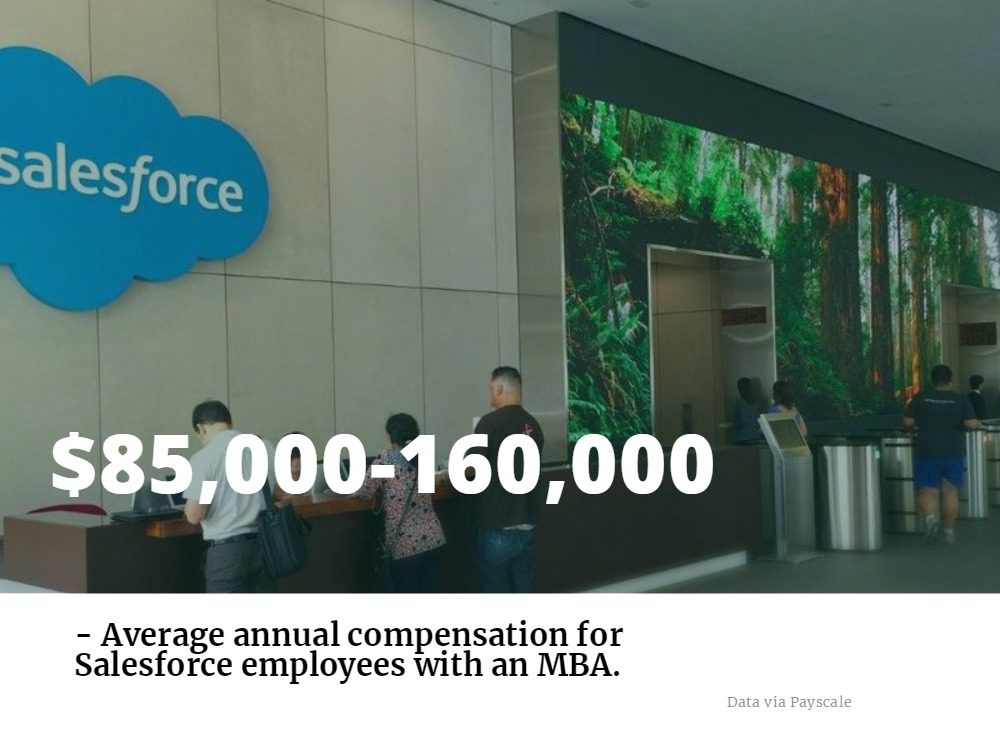How You Can Become an Implementation Consultant with an MBA

If you’re a natural problem solver who likes tackling large projects and managing teams, a role as an Implementation Consultant (IC), could be the perfect fit. With jobs in fields as varied as compliance, human resources, software development, healthcare and pharmaceuticals (among others) this is a top job for MBAs who want to put their management skills to work.

Companies like Oracle, Deloitte, IBM, PwC and McKinsey all frequently seek ICs to serve in various capacities, which is great news for MBAs who are just starting out or considering a career shift.
What is an Implementation Consultant?
In short, an IC is hired by an organization to ensure that a new system, tool, or process is used efficiently. According to an article describing the position on modernanalyst.com, “You [will be] chiefly responsible for understanding the client’s requirements and … addressing gaps so that the solution or product will meet your particular client’s needs.”
An IC is hired by a service provider (such as a tech company or a finance and consulting firm) to put the service into place and ensure that it runs as smoothly as possible. Often, the IC is brought in on a project by project basis so a fair amount of flexibility is required in the role. Also important are communication and “people skills,” as the IC will work with teams in various levels and divisions within a company.
A story on LinkedIn explored the role of the IC in the tech realm. The skills laid out, however, are applicable to any field that requires such a position. They are:
- Client Engagement
- Cross Domain Expertise
- Presentation and Training
- Cross Cultural Competence
The Implementation Consultant often acts as the ‘face’ of the service or product, so an understanding of a client’s needs and values is one of the most important aspects of this role.
Examples of scenarios in which a company brings in an IC are implementing new software, which requires configuring the product to the company’s needs and ensuring follow through after installation; assisting organizations with new corporate structures such as those that happen during mergers or acquisitions, and putting new policies and procedures in place after shifts in government regulations.
Implementation Consultant Salaries
Implementation Consultants can earn an average of $98,000 per year, according to Paysa data. This represents a range of about $85,000 in the 25th percentile of earning and $110,000 in the 75th percentile. The top 10 percent earn over $123,000.
Five of the highest paying companies for ICs are Leidos, BlackLine Systems Accounting Software, Salesforce, Omniture, and Kaplan K-12 Learning. The cities with the highest paid positions for the role are Los Angeles, San Francisco, Seattle, Philadelphia, and Boston.

A recent FirmsConsulting.com article says it best regarding the need for good ICs:
“No matter how good a firm is, they can never predict all the problems with implementing a strategy.”
Getting Started
Among the skills required to become an effective Implementation Consultant are project management and general management, along with analytics. While many undergraduate degrees with a business or information systems focus can get your foot in the door, an MBA may push you to the top of the list of desirable hires.
An MBA with a consulting, project management, or analytics focus is ideal for a future in Implementation Consulting. As previous articles have covered, Chicago Booth, MIT Sloan, Columbia Business School, and Northwestern Kellogg, are all considered leaders of the pack of feeder schools to top consulting firms.
Project management education can also help earn a way into the role. Penn State’s Smeal College of Business‘ program is one of the top in the field, as are those at Lehigh University College of Business and Economics, Georgetown University McDonough School of Business, and Boston University’s Questrom School of Business.
Tackling Unemployment Insurance with Google, and More – Chicago News

Let’s explore some of the most interesting stories that have emerged from Chicago business schools this week.
What Google Is Teaching Economists About Unemployment Insurance – Kellogg Insight
For decades, policymakers have debated whether unemployment insurance provides a critical safety net during tough times or whether it extends joblessness by reducing the incentive to find a new job.
Northwestern University Kellogg School of Management Associate Professor of Finance Scott R. Baker and BU Questrom’s Andrey Fradkin used data from Google Trends to shed some light on this question by providing real-time access to millions of searches that can be aggregated across geographies.
“We realized we could look at people’s job-search habits in a way that traditional government datasets had a hard time doing,” Baker says.
Baker says the value of the Google Job Search Index extends well beyond job-search tracking. The GJSI offers new ways to forecast consumer sentiment and economic uncertainty by tracking search terms such as “recession” and “bankruptcy.”
“This approach can be really useful for policymakers because it can be much more local and granular,” Baker notes, “and they can access it without a six-month or year-long lag.”
You can learn more about the duo unemployment insurance research here.
Pioneers in Education – Chicago Booth News
Six Booth School of Business graduates hope to apply their business backgrounds and bold ideas to a variety of roles within the education sector, including nonprofit management, education consulting, investing, and education technology.
Booth MBA alum Micki O’Neil, founder of Foundations College Prep, a public charter school in Chicago’s Roseland community on the city’s south side, explains how Booth provided her with the necessary skills to handle the rigors of running a charter school. “Starting a school is a pretty all-encompassing thing. It takes leadership and entrepreneurial skills, as well as operations, marketing, and financial know-how,” she says.

“Starting a school is a pretty all-encompassing thing. It takes leadership and entrepreneurial skills, as well as operations, marketing, and financial know-how,” O’Neil says.
As the school matures into its fifth year, O’Neil finds herself reflecting on her Booth coursework as she tackles ongoing challenges, noting “when we think about designing our school and the way we are structuring our time, it is grounded in strong economic theory.”
You can read more about O’Neil’s journey here.
Gies Business Cooking Up Food Science Entrepreneurs – Gies College of Business News
The University of Illinois Gies College of Business recently partnered with the College of ACES to develop a unique collaboration in which students take a deep dive into the business strategies of food science.
“This course collaboration was a perfect opportunity to infuse entrepreneurship education with an emphasis on social purpose into an effective food product development capstone,” says Valeri Werpetinski, Associate Director for Entrepreneurial Education with the Origin Ventures Academy for Entrepreneurial Leadership at Gies College of Business.
Charlie Stahursky, a senior food science major, was paired with Patryk Swietek, a senior information systems major and mentor from Gies.
“We were coming more from a science and nutrition perspective, but Patryk forced us to think about our selling points and marketability. We had to go back to the drawing board a bit to find trendy ingredients and discover what people really wanted in their food. I think that set us on track to developing a really good product.”
You can read more about the new course collaboration at Gies here.
U.S. Tops Highest MBA Salary Rankings

Return on investment post-MBA is one of the main considerations for candidates. After all, who would want to spend tens of thousands of dollars on an education without a solid salary afterward? That’s why it’s so important to look at how the best MBA programs can affect a graduate’s salary.
So, where should you go to school for your MBA if you want the best salary after graduating? We’re taking a look at the highest earning MBA programs per country to dig down into what you can earn as an MBA all over the world.
Americans Are Disconnected With Upward Mobility, Says New Kellogg Research – Chicago News

Let’s explore some of the most interesting stories that have emerged from Chicago business schools this week.
How Closely Do Our Beliefs About Social Mobility Match Reality? – Kellogg Insight
New research from Northwestern Kellogg Assistant Professor of Managerial Economics and Decision Sciences Edoardo Teso assessed mobility rates among social classes in the U.S., U.K., France, Italy, and Sweden and found that Americans’ overestimated and Europeans underestimated “people’s chances of climbing from the bottom to the top of the economic ladder.”
According to the article, Teso wonders whether the disconnect between people’s perceptions compared to the reality of social mobility might “explain why the United States often resists income redistribution policies such as higher taxes for the wealthy, while many European nations embrace them.”
“These perceptions are really deeply rooted,” Teso notes.
“America is famously a land of immigrants where many people did in fact build their own fortunes. In contrast, Europe practiced feudalism for centuries, during which a person’s fate was largely governed by their family circumstances,” Teso’s research claims.
You can read more about research here.
PIMCO and University of Chicago’s Center for Decision Research Announce Partnership to Guide Wiser Decision-Mking – Booth School of Business News
To commemorate the partnership between Chicago Booth’s Center for Decision Research (CDR) and PIMCO, an “innovator in applying research to investment decisions,” the CDR laboratories will be rechristened the PIMCO Laboratories for Decision Research, which will “yield scientific discoveries with the potential to improve individual and social welfare.”
PIMCO Group CIO Dan Ivascyn writes, “Through this novel partnership, we hope to nurture exceptional insights into decision making behavior that will ultimately help PIMCO make wiser decisions for portfolios, clients and employees.”
Booth Dean and George Pratt Shultz Professor of Accounting Madhav Rajan writes, “PIMCO’s spirit of experimentation and interest in asking real-time questions about investing and the economy make it the ideal partner for Booth.”
According to the press release, the PIMCO Decision Research Laboratories will “include a new ‘storefront’ behavioral science research lab to foster greater engagement with the public and to broaden the reach and increase diversity of participants in the research studies.”
Rajan continues, “From PIMCO’s plans to disseminate CDR’s research findings, to conducting joint projects in behavioral science, the collaboration will have a transformational impact on our research enterprise.”
You can read more about the partnership here.
MBA Student Carley Mostar Secures Funding for Her Community – UIC Business Blog

Carley Mostar, Gies MBA ’19
The UIC Liautaud Graduate School of Business recently profiled Carley Mostar, MBA ’19, whose “Info Park” project secured $25,000 in funding from the Ford College Community Challenge (Ford C3).
Conceived as a collaboration between Mostar, the UIC School of Architecture, and the community of East Garfield Park, Mostar dreamt a plan to transform “one of the lots into a member-use space for the community to use as our own public or private space.”
Mostar and the group have hit the ground running, working with “community engagement workshops and have even started researching fabricators and vendors to work with in preparation for construction, slated to start in early spring of 2019.”
Mostar explains the importance of incorporating the voices of the community into her “Info Park” plan.
“It’s very important to me when doing this kind of work to make sure that the people who the work is for have their voices centered in the outcome of the project,” she says in a recent interview.
You can read more about Mostar and the project here.
Working From Home, Maximizing Profits, and More – Chicago News

Let’s explore some of the most interesting stories that have emerged from Chicago business schools this week.
Are You a Different Person at Work Than at Home? Compartmentalizing Like This Can Lead to Unethical Decisions – Kellogg Insights
Northwestern Kellogg Assistant Professor of Marketing Maferima Touré-Tillery and the University of the Sciences’ Alysson Light coauthored new research, which finds that “people who perceive their personalities as constant across their roles are more likely to behave ethically than those who think of themselves differently in each role.”
Touré-Tillery explains, “If I tend to think about myself the same way from one identity to the next, then if I do something that’s going to make me feel bad about myself, it’s likely that I’ll feel bad about myself across all of my identities.”
She adds, “Every unethical thing amplifies that sense of being a bad person. By having them merge their work and personal lives, you are helping them merge their identities as parent and worker—so they might behave more morally across the board.”
You can read the full Kellogg Insights article here.
Should Public Companies Do More Than Maximize Profits? – Chicago Booth
At a recent panel discussion hosted by Chicago Booth’s Rustandy and Stigler Centers, BlackRock Co-founder Sue Wagner and Booth’s Luigi Zingales and Marianne Bertrand dissected BlackRock CEO Larry Fink’s letter to his fellow CEOs, imploring them to engage more deeply with social issues as part of their long-term strategies.
Moderator Robert H. Gertner explains, “We have seen greater discussion, both within and outside of academia, about the role of corporations. It has come from consumers, from employees, from the government, from academics, and from investors. Perhaps this letter from Larry Fink may go down as a sort of cornerstone of this discussion.”
You can read the full exchange between all the panelists here.
Tech Leader Shares His Views On Innovation, Autonomous Vehicles, and Purpose – Gies School of Business News
The University of Illinois Gies College of Business recently hosted Mobileye ASIC Department Project Manager and Founding Engineer Mois Navon, who discussed how his company’s purpose has driven their success.
The Israeli-based Mobileye is “one of the leaders in driver assistance technology and autonomous vehicle research.” According to the article, “the demonstrated ability of [Mobileye’s] products to help prevent accidents led insurance companies to give discounts to people who used them. People were getting into fewer accidents, and the accidents they did get into were less severe.”

Navon explains Mobileye’s purpose within the Jewish concept of tikkun olam, which means “fixing the world.”
“I think that technology is that driving force for fixing the world—even though new technologies can engender difficult transitions. I think humanity is ultimately driven by purpose. We’re here to fix ourselves. We’re here to fix the world. And I hope you’ll join me.”
You can read more about the company and Navon’s speech at Gies here.
The Perfect MBA Career: Portfolio Manager

If working in investment strategy seems appealing, then a job as a portfolio manager may be right for you.
